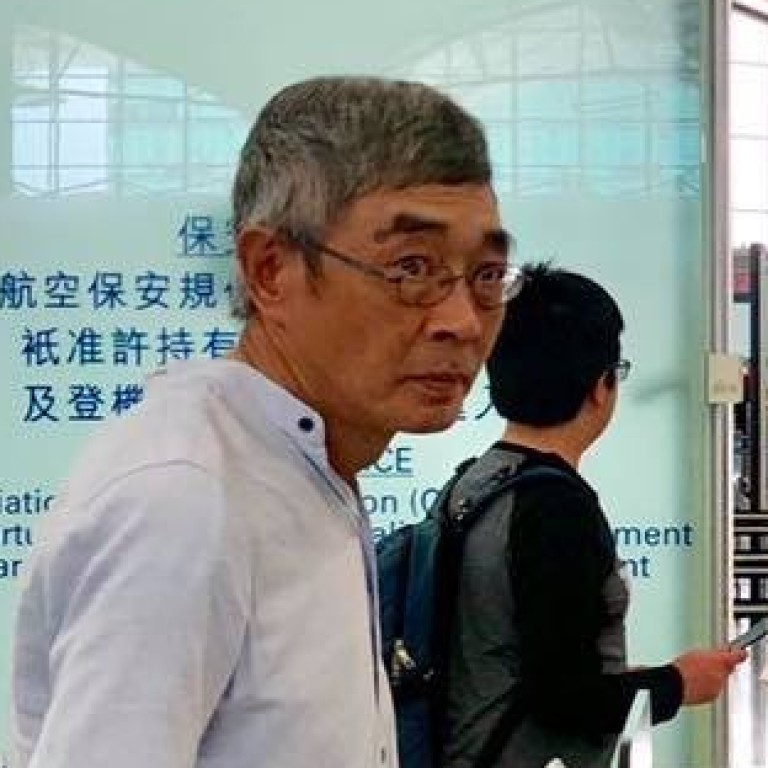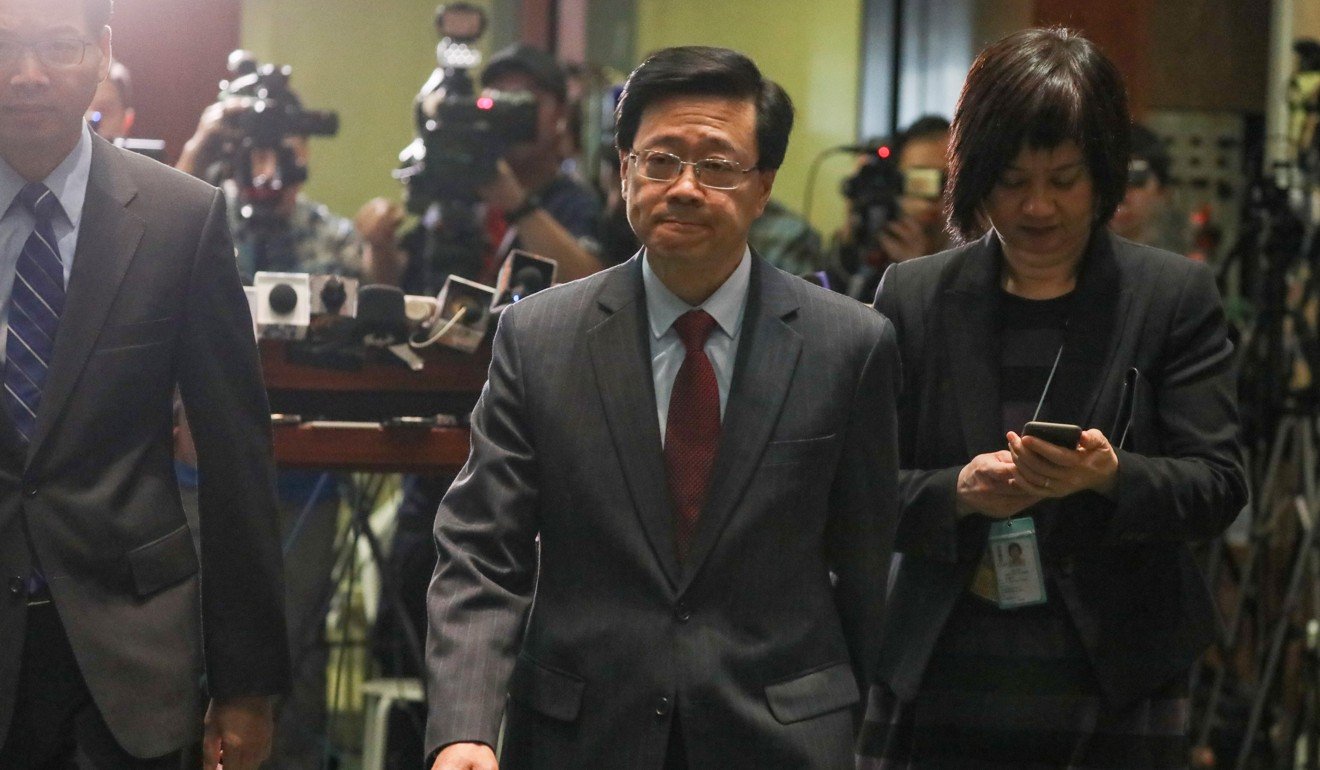
Bookseller Lam Wing-kee leaves Hong Kong for Taiwan, fearing proposed extradition law will mean he is sent to mainland China
- Opposition lawmaker Claudia Mo accompanied Lam to airport and said he decided a month ago to open a bookshop in Taiwan
- The bookseller is ‘extremely worried’ and convinced he is at top of extradition list, she says
Bookseller Lam Wing-kee, who claimed he was kidnapped by Chinese agents in 2015 for selling books banned across the border, left Hong Kong on Thursday for a new life in Taiwan, expressing deep fears about the government’s controversial extradition proposals.
The former manager of Causeway Bay Books departed for the self-ruled island just days before a rally by the pro-democracy camp on Sunday against the government’s bill to allow the transfer of fugitives to any jurisdiction with which the city does not have an extradition agreement including mainland China, Taiwan and Macau.
Opposition lawmaker Claudia Mo Man-ching, who accompanied Lam to the airport, said on Friday he decided a month ago to open a bookshop in Taiwan.
“He is extremely worried and convinced he is at the top of the list of those who could be extradited,” Mo said. Lam, who was still wanted across the border, had “absolutely no faith in the mainland’s legal system”, she added.

A source close to Lam, 63, said his move had received the blessing of Taiwanese authorities.
Mainland authorities have accused him of illegal operations and jumping bail, and he is still wanted for criminal investigation.
China denies it met daughter of detained bookseller Gui Minhai
The Hong Kong government, meanwhile, has defended its extradition proposals, saying they have not been tailored just to send suspected criminals to the mainland.
Secretary for Security John Lee Ka-chiu said the arrangement was only “supplementary” and the changes were intended to handle requests to places without formal extradition arrangements if necessary.
“Those who oppose the bill have incorrectly branded it as a ‘mainland-Hong Kong rendition arrangement’,” Lee wrote in a newspaper opinion piece on Friday. “In fact, this is aimed at any jurisdiction, not just mainland China.”
Lawmaker and former secretary for security Regina Ip Lau Suk-yee said Lam’s concerns were unfounded since selling books was not illegal in Hong Kong and could not trigger extradition across the border.
“I really don’t understand what’s the basis of his worry,” she said.
Asked if it would be a different case if Lam was prosecuted for smuggling banned books, Ip said Hong Kong courts would block any request of a political nature.
But Mo, convenor of the pro-democracy camp’s meetings, said their worries remained.
“Mainland authorities can easily set up Lam by charging him with a different crime,” she said.
There is also growing opposition to the bill in Taiwanese political circles. Three lawmakers from the ruling Democratic Progressive Party expressed fears at a press conference that opening up extradition to the mainland would threaten the security of Taiwanese people in Hong Kong.

Huang Ting-hui, who handles affairs concerning Hong Kong, Macau, Inner Mongolia and Tibet at Taiwan’s Mainland Affairs Council, said any dialogue between the city and the island should focus on a formal mutual legal assistance agreement.
Hong Kong is Lam’s hometown and he would not leave until he had to
Despite two years of planning, a deal to set up the bookstore was aborted last June. His partners pulled out after the wife of a Hong Kong investor complained of threats from mainland authorities.
The Mainland Affairs Council told local media that Lam was permitted to remain for one month and could apply for a work visa or long-term stay.
Legal scholar Tseng Chien-yuan, who was asked by Lam to be his emergency contact for immigration purposes, believed the bookseller’s decision to move was his own idea rather than an invite from the authorities.
“When Lam was trying to open a new Causeway Bay Books in Taipei, he was already considering moving part of his life from Hong Kong to Taiwan,” Tseng said. “But Hong Kong is his hometown and he would not leave until he had to.”


